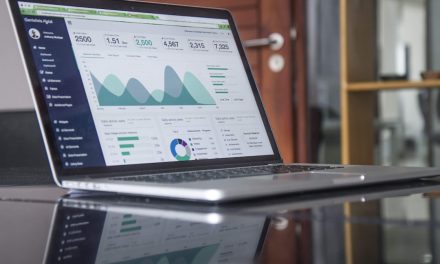A key component of successful Search Engine Optimization (SEO) in the constantly changing field of digital marketing is analytics. Knowing how to use data effectively can greatly improve your tactics as you negotiate the challenges of online visibility. The methodical gathering, evaluation, and analysis of data pertaining to the functionality of your website is known as analytics in SEO. By using a data-driven approach, you can make well-informed decisions that may result in higher conversion rates, more traffic, and better rankings.
Key Takeaways
- Analytics in SEO involves the use of data and metrics to improve website performance and search engine rankings.
- Understanding the importance of analytics in SEO is crucial for making informed decisions and optimizing strategies.
- Utilizing data and metrics can help in identifying areas for improvement and enhancing overall SEO performance.
- Analytics plays a significant role in keyword research and analysis, helping to identify relevant keywords and optimize content.
- Leveraging analytics for content optimization involves using data to create and optimize content that resonates with the target audience and search engines.
As you learn more about SEO, you’ll discover that analytics assist you in determining the success of your SEO campaigns in addition to offering insights into consumer behavior on your website. You can track user behavior, find optimization opportunities, and identify trends by utilizing analytics. The many aspects of analytics in SEO will be covered in this article, along with its significance and helpful advice on how to use data efficiently. Using data-driven insights, strategies are being refined. By knowing what works and what doesn’t, companies can improve their SEO tactics and concentrate on the areas that produce the greatest outcomes.
Analytics enables businesses to establish quantifiable targets and monitor their advancement over time, guaranteeing that their SEO endeavors are in line with their corporate goals. establishing key performance metrics (KPIs). Businesses can track their progress & improve overall performance by implementing KPIs & making data-driven decisions. This method turns SEO from a guessing game into a methodical undertaking supported by data.
Improvement & Adaptation in Real Time. By keeping a close eye on metrics, companies can make real-time adjustments to their strategies and improve their SEO performance. Analytics help businesses stay ahead of the competition and accomplish their online objectives. Gaining proficiency with a variety of data and metrics is necessary to fully utilize analytics in SEO.
Start by becoming acquainted with Google Analytics and Google Search Console, two crucial tools. These platforms offer a multitude of data regarding the performance of your website, such as user demographics, sources of traffic, and patterns of behavior. You can determine which pages need improvement and which are performing well by examining this data. Establishing clear objectives for improvement is necessary after you have a firm grasp of your present performance metrics. For example, a high bounce rate on particular pages can be a sign that users are not interested in or finding the content relevant. You can then improve those pages in a practical way, whether it’s by adding more compelling calls to action, better design, or better content.
Better SEO performance can be achieved by creating a cycle of continuous improvement through the monitoring of these metrics and the adjustments made in response to your findings. Analytics are essential to the process of conducting keyword research, which is a basic component of SEO. You can learn more about what potential customers are looking for by examining the search terms that bring them to your website. By using this data, you can improve your keyword strategy and make sure that the terms you choose both drive traffic and correspond with user intent. Analytics can assist you in identifying long-tail keywords that are highly relevant to your audience but may face less competition, in addition to identifying high-traffic keywords.
You can attract more qualified leads and establish yourself as an authority in particular fields by concentrating on these niche terms. You can also evaluate the success of your optimization efforts and make the required changes to maintain your competitiveness in search rankings by monitoring keyword performance over time.
To determine how well your content connects with your audience, look at user engagement metrics like time on page, scroll depth, and social shares. Analytics can assist you in determining the causes of underperforming content, whether it be inadequate promotion, lack of relevance, or bad formatting.
You can take concrete measures to improve your content after you’ve determined where it needs work. This could entail revising portions to increase clarity & engagement, adding multimedia components like pictures or videos, or updating out-of-date information. Using analytics also enables you to experiment with various content formats and styles to determine which ones your audience responds to the most. You can produce a more captivating user experience that increases traffic and conversions by consistently improving your content using data-driven insights. Important metrics to pay attention to.
Conversion rates, keyword rankings, organic traffic growth, and user engagement levels are important metrics to pay attention to. evaluating the efficacy of a strategy. Through consistent evaluation of these metrics, you can determine whether your tactics are producing the intended outcomes. Also, you can track particular user actions on your website, like completing a contact form or making a purchase, by integrating conversion tracking into your analytics platform.
Educating Future Plans. This data gives you important information about how well your SEO efforts result in measurable business outcomes. You can make sure that your SEO efforts stay in line with your overarching business objectives by examining this data over time to spot trends & patterns that guide future tactics.
Analytics’ capacity to assist you in locating and fixing SEO problems before they become more serious is among its most potent features. Red flags like a sharp decline in organic traffic or an increase in bounce rates, for example, should be looked into right away. You can find possible problems like broken links, sluggish page loads, or inadequate mobile optimization by delving into your analytics data. After determining the underlying causes of these problems, you can take proactive steps to resolve them.
This could entail using responsive design for mobile users or image compression to improve page speed. Also, by giving you continuous insights into the health of your website, regular audits using analytics tools can help you stay ahead of possible issues. Maintaining a strong online presence and guaranteeing a satisfying user experience can be achieved by using analytics to quickly detect and address SEO issues.
There will be exciting developments in SEO analytics in the future as long as technology keeps improving. The incorporation of machine learning and artificial intelligence (AI) into analytics tools is one new development. By analyzing enormous volumes of data at previously unheard-of speeds, these technologies can offer more profound insights into user preferences & behavior.
As a result, you will be able to use predictive analytics to make better decisions about your SEO tactics. The growing significance of voice search optimization is another trend to keep an eye on. As smart speakers & voice-activated gadgets become more common, it will be crucial to comprehend how people search using voice queries in order to conduct efficient keyword research and produce quality content. Analytics will be essential for monitoring voice search trends and assisting you in modifying your tactics as necessary.
You may improve your online visibility and produce significant business outcomes by realizing its significance & making good use of data in all facets of SEO, from content optimization to keyword research. Keeping up with new developments in technology will help you stay competitive in a constantly shifting market.
In a related article on the importance of SEO in digital marketing, SEO World Academy discusses the various strategies and techniques that can be used to improve a website’s search engine ranking. The article emphasizes the role of analytics in SEO, highlighting how data-driven insights can help businesses make informed decisions and optimize their online presence. By leveraging analytics tools and tracking key metrics, companies can better understand their target audience, monitor their website performance, and ultimately drive more traffic and conversions.
FAQs
What is the role of analytics in SEO?
Analytics in SEO refers to the use of data and metrics to analyze and measure the performance of a website in search engine results. It helps in understanding user behavior, identifying trends, and making data-driven decisions to improve the website’s search engine visibility.
How does analytics help in improving SEO?
Analytics provides insights into the performance of a website, including traffic sources, user engagement, keyword performance, and conversion rates. This data helps in identifying areas for improvement and optimizing the website for better search engine rankings.
What are the key metrics used in SEO analytics?
Key metrics in SEO analytics include organic traffic, keyword rankings, click-through rates, bounce rates, conversion rates, and user engagement metrics such as time on page and pages per session.
How can analytics help in keyword research for SEO?
Analytics tools can provide data on the performance of specific keywords, including their search volume, competition, and click-through rates. This data helps in identifying high-performing keywords and optimizing content around them.
What are some popular analytics tools used in SEO?
Popular analytics tools used in SEO include Google Analytics, Google Search Console, SEMrush, Ahrefs, Moz, and many others. These tools provide valuable data and insights for optimizing a website’s SEO performance.
How can analytics help in measuring the success of an SEO campaign?
Analytics can track the performance of an SEO campaign by measuring changes in organic traffic, keyword rankings, and user engagement metrics. It helps in evaluating the effectiveness of SEO strategies and making adjustments for better results.





